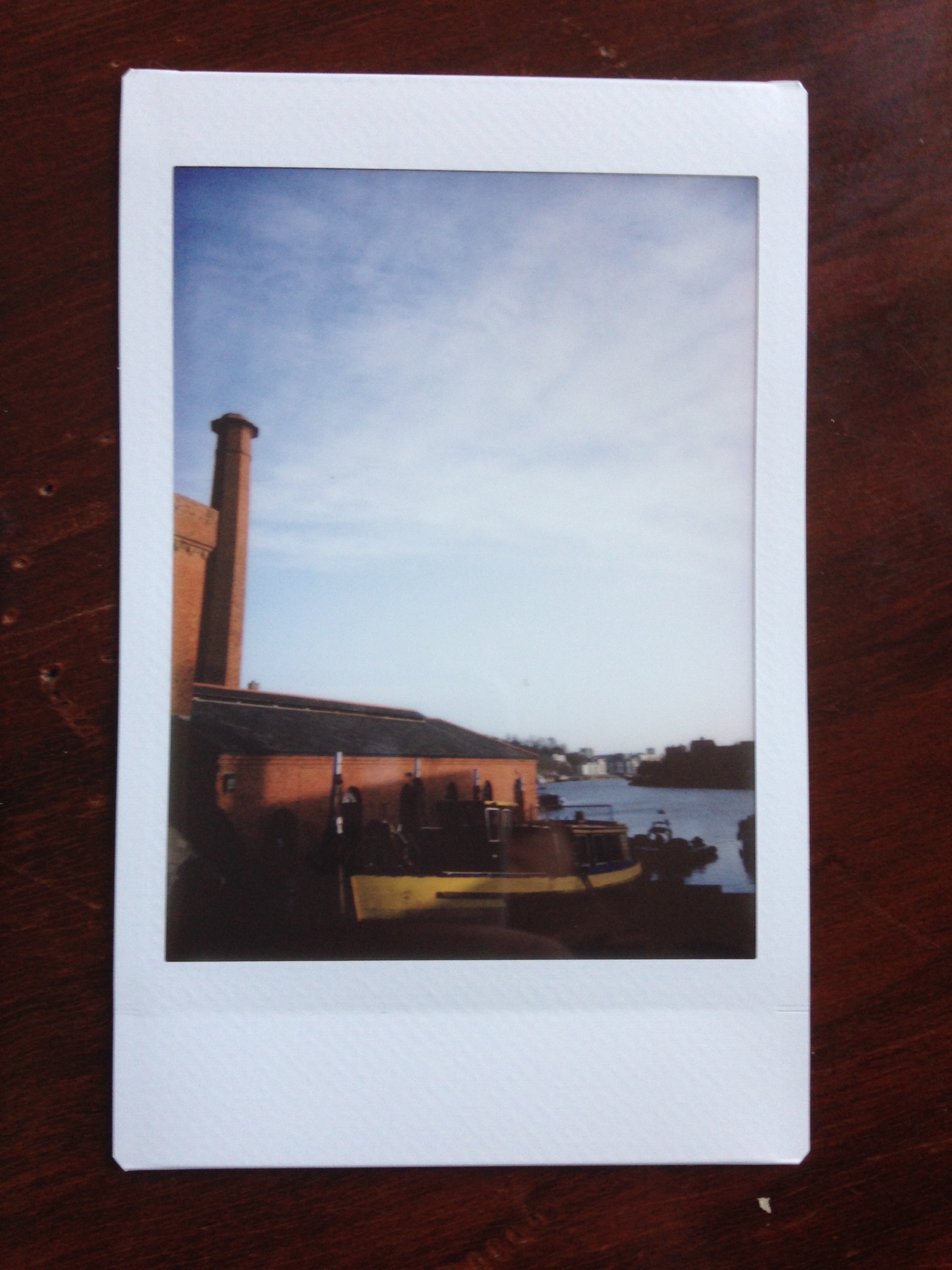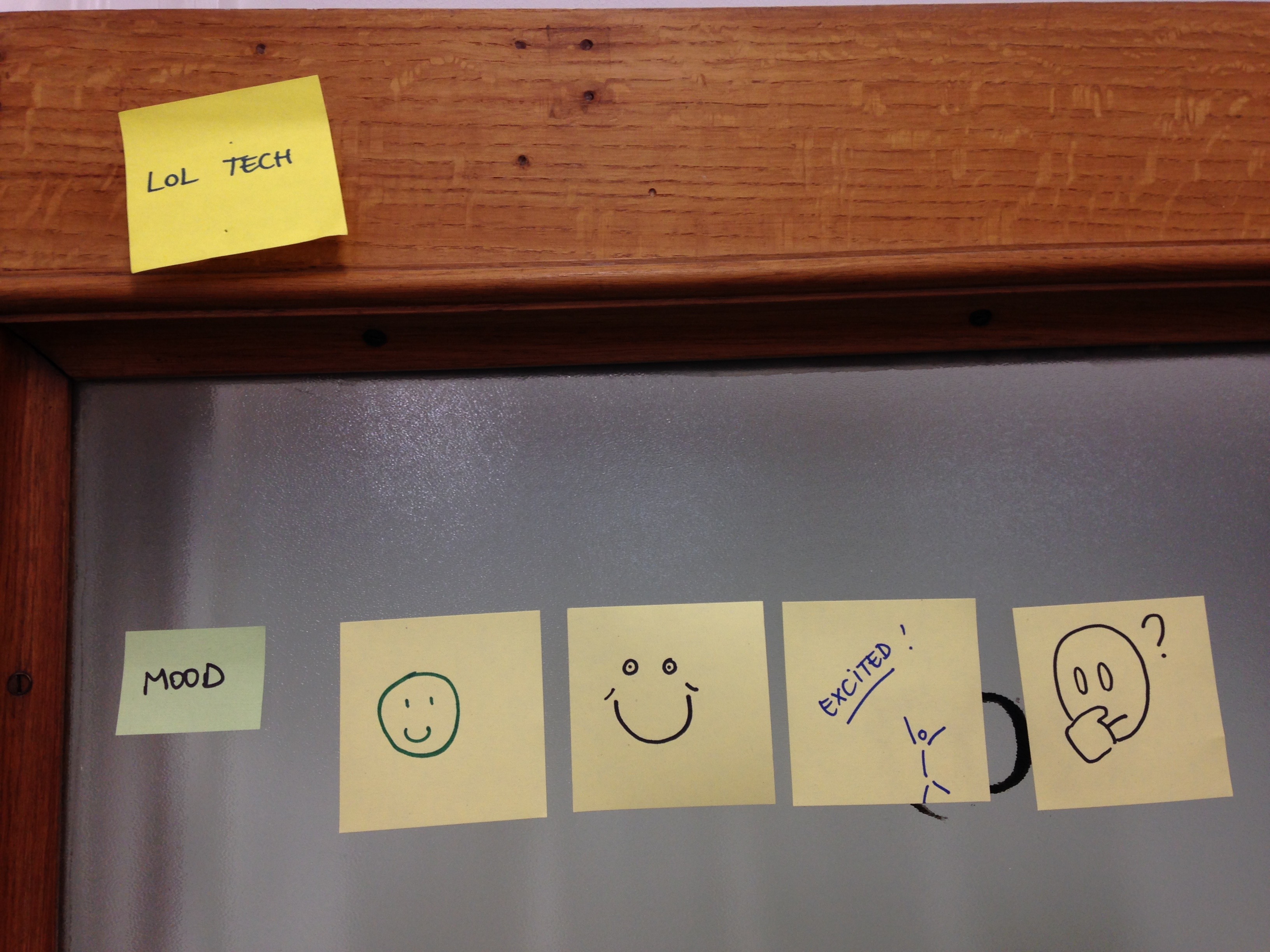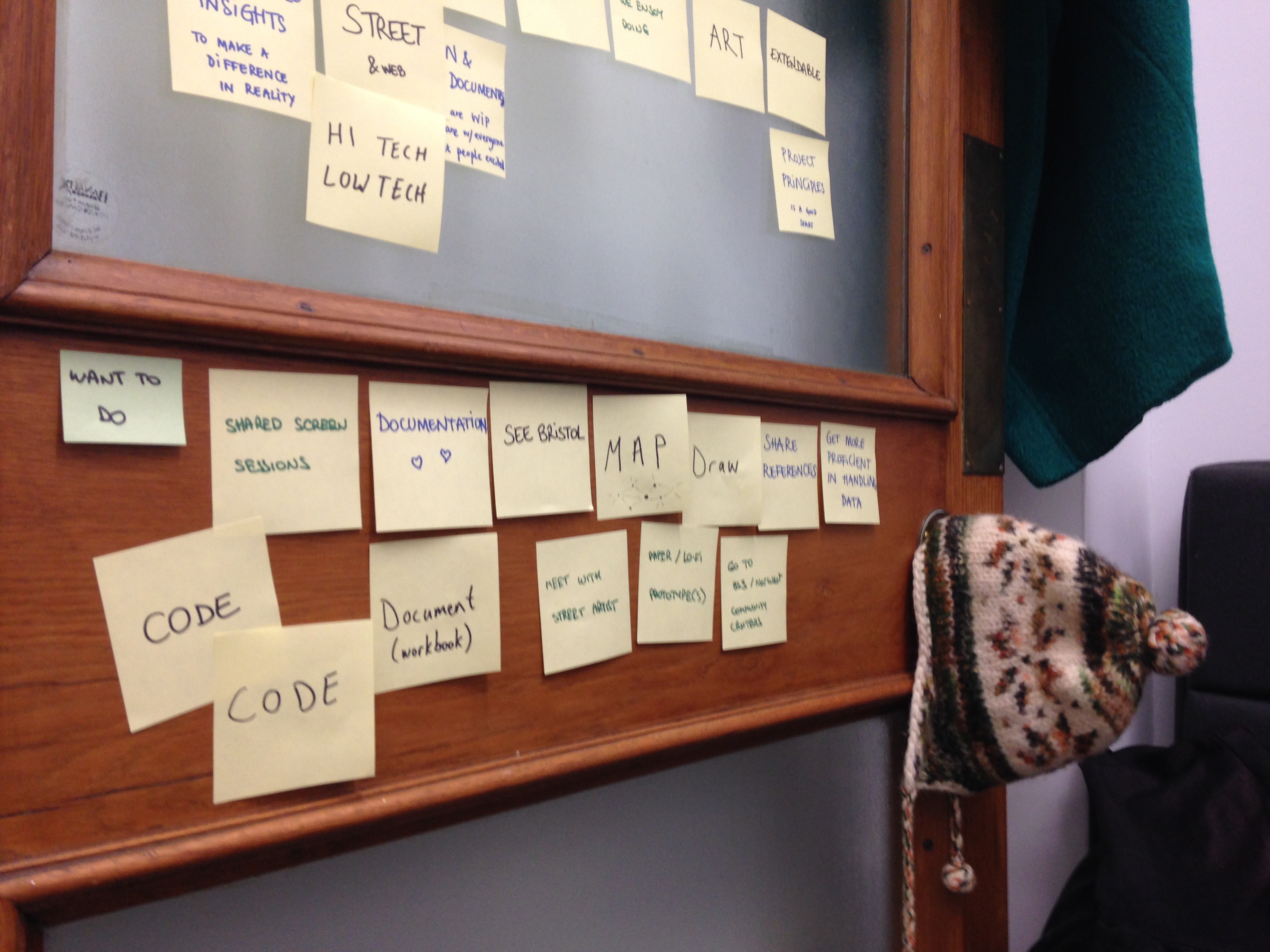Diary of day 1 • Bridging the gaps
Program of the day:
- 9.30 - Kick-off meeting with Kevin O’Malley
- 10.30 - Kick-off meeting with Matt Davenport
- 12.00 - Team building and alignment session
- 13.00 - Lunch at the cantine
- 14.00 - Meeting with Phil Chan - Quality of life survey
- 15.30 - Meeting about the One City Plan
- 16.00 - Team coding
- 17.00 - Team retrospective
- 18.30 - Team drinks at the Grain Barge
Summary
On this first day of the project, we set out to spend the day at Bristol City Council, meeting the team leading the City Innovation Programs, championing open data and actively working for change.
Top questions / things we learned / key takeaways:
-
Bristol is a leader in city innovation. There are a wealth of active programs on these topics, helped along by the tech industry, but also the vibrant fabric of activists and communities.
-
How do we measure inequality and/or wellbeing? How do we create a finer fabric for sensing these things and can it positively impact citizens’ lives?
-
Can data affect and drive real change on the topic of wellbeing and inequalities? Can we find a better path to measure them?
-
How can we connect problems to their solutions? “There is inequality everywhere but, what are we doing about it?”
-
Averages are the enemy. Local and regional data need a boost in order for this to be successful.

Interviews
We interviewed 5 people:
-
Kevin O’Malley, City Innovation Team Manager at Bristol City Council Our main contact for this program. Top quotes:
‘Bristol is very large and has some of the wealthiest and some of the poorest communities in the UK. It’s a bit of a tale of two cities’.
-
Matt Davenport, Open Data Project Manager at Bristol City Council
Currently developing a program of activity around open data.
- Top need: Make open data a priority by making it more accessible, showcasing the possibilities.
-
Top stories: Damp busters - A recent successful example in citizen sensing. The project placed damp sensors in frog models and monitored evolution over time in people’s homes. A great example of how data can make tangible change. Believer in a people-focused development of the smart city. An advocate for the production of data stories rather than depersonalised representations. Interested in communal, dynamic experiences, interactivity.
- Phil Chan, Strategic Intelligence and Performance Advisor, Quality of Life Survey expert
The Quality of life survey is an annual snapshot designed to sense the wellbeing of Bristol’s citizens. It has been going on since 2001, one of the first of its kind. The great benefit of it is that it paints a more granular view of human experience and localised data, in addition to official statistics.
“We look at the 10% most deprived in Bristol”. “One of the mayor’s priorities is bridging the gap” Topics in the survey: Transport - Environment - Education - Safety - Health - Housing…
Examples of questions:
- How safe / unsafe do you feel outdoors in your neighbourhood after dark?
- How well would you say you are managing financially these days?
- If needed, do you know where to get information, advice & guidance about employment & training?
- How satisfied / dissatisfied are you with the bus service?
Our thoughts after the session: How do cities become more knowledgeable about their citizens and their needs? How can cities become more responsive? With the current trend of budget cutting, how can we help them target and surface issues, how can they become more efficient and connected to pressing needs?
- One City Plan
Summary: Bristol is launching a program designed to share a vision, and baseline existing strategies. A prioritisation of efforts which is designed to be future-thinking, and invite to think in the long term. What will cities and societies look like in 2050? They wish to open these questions to the people of Bristol by opening up the program and extend invitations to collaboratively design and shape the future of the city.

Coming together as a team
Any good Design Sprint or Work Week should begin with making time for the team to get to know each other, to spell out their expectations and aspirations about the project. Niched in a room in Bristol City Council, we each listed:
- Our current mood
- What we’d like to learn this week
- Our fears
- Our expectations
- What we’d like to do during the week.
The last item recognizes that we all have become accustomed to endorsing roles and titles but we are also curious people, eager to make use of skills that might or might not fall into our pre-baked ‘categorisations’. Recognising the multi-potential in people rather than assigning them to “tribes”, that feel restrictive.

End of day conclusions and questions:
What is a deprived area? Is there data to confirm this? Where are they in Bristol?
Our focus for the project:
Bristol is a pioneering city in terms of innovation. How can that lead to positive change for all? Can open data help surface problems and lead to their potential solutions?
We also learned:
- That there is opportunity to showcase the project in the Data Dome
- Specifically during a data festival due to happen in March.
Data sources:
- Quality of life survey
- Deprivation in Bristol
- Happy City Index
- ONS
- JSNA
- NHS
- Police
- Data.gov
- Bristol Open Data Platform
Resources: Deprivation Index
Expression of the day: Bridge the gaps Notable word slips: Lol tech, selfless cars, datastellations